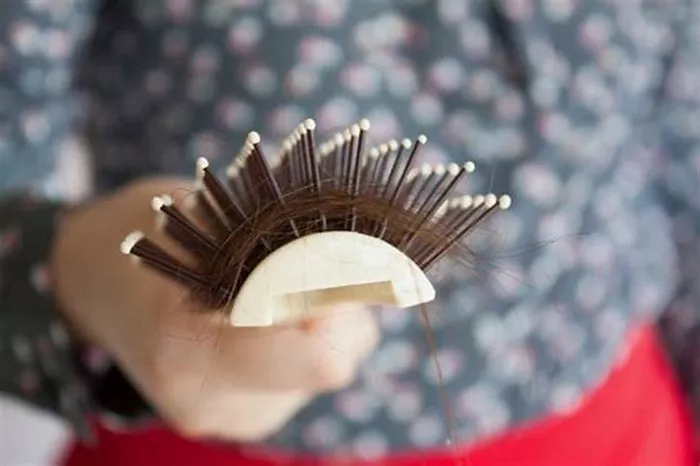The joy of welcoming a new life into the world is often accompanied by a myriad of physical changes for new mothers. One common concern that many women face is postpartum hair loss. This article explores the phenomenon of postpartum hair loss, addressing the question on every new mother’s mind: does postpartum hair loss grow back?
The Physiology of Postpartum Hair Loss
Hormonal Fluctuations: During pregnancy, elevated hormone levels contribute to thick, luxurious hair. Postpartum, hormone levels plummet, leading to a shedding phase known as telogen effluvium.
Delayed Impact: Postpartum hair loss typically peaks around three to six months after giving birth, as this is when the majority of hair follicles enter the resting (telogen) phase.
Temporary Nature: The reassuring aspect of postpartum hair loss is its temporary nature. It is a natural response to hormonal shifts and does not indicate permanent damage to hair follicles.
Understanding the Growth Cycle
Anagen, Catagen, Telogen Phases: Hair growth is cyclical, with anagen (growth), catagen (transition), and telogen (resting) phases. Postpartum hair loss primarily affects the telogen phase.
Duration of Telogen Phase: The duration of the telogen phase varies individually, influencing the timing and extent of postpartum hair loss.
Natural Hair Regrowth: As the body adjusts to postpartum hormonal changes, the hair growth cycle resumes, leading to natural regrowth.
Factors Influencing Postpartum Hair Regrowth
Nutritional Considerations: Adequate nutrition, including vitamins and minerals essential for hair health, plays a role in facilitating postpartum hair regrowth.
Postpartum Self-Care: Practices such as gentle hair care, avoiding excessive heat styling, and managing stress contribute to a supportive environment for hair regrowth.
Breastfeeding and Hormones: Breastfeeding can influence hormonal levels, and the decision to breastfeed may impact the timing and pattern of postpartum hair loss and regrowth.
Patience in the Postpartum Period
Gradual Recovery: Postpartum hair regrowth is a gradual process. New mothers are encouraged to be patient as they navigate this phase, understanding that visible improvements may take time.
Variable Timelines: The timeline for postpartum hair regrowth varies among individuals. Factors such as genetics, overall health, and lifestyle choices contribute to the pace of recovery.
Hairstyle Strategies: Opting for hairstyles that minimize the appearance of thinning hair, such as layers or shorter styles, can boost confidence during the regrowth phase.
Medical Interventions for Postpartum Hair Loss
Topical Treatments: Some women may explore topical treatments containing minoxidil to promote hair regrowth. Consulting with a healthcare professional is advisable before using any over-the-counter products.
Hormone Therapy: In cases where hormonal imbalances persist, healthcare providers may recommend hormone therapy to address underlying issues influencing postpartum hair loss.
Nutritional Supplements: Supplements containing essential vitamins and minerals, such as biotin and iron, may be suggested to support overall hair health and regrowth.
Postpartum Hair Loss and Repeat Pregnancies
Subsequent Pregnancies and Hair Health: Women who experience postpartum hair loss in one pregnancy may be concerned about its recurrence in subsequent pregnancies. Understanding the role of hormonal fluctuations and implementing proactive measures can ease these concerns.
Individual Variations: Hair changes can vary between pregnancies, and factors such as age, overall health, and genetic predisposition contribute to individual experiences.
Conclusion
In conclusion, postpartum hair loss is a common and temporary occurrence, often resolving naturally as the body adjusts to hormonal changes after childbirth. Understanding the physiological basis, embracing patience, and adopting supportive practices can aid new mothers in navigating this phase with confidence. While medical interventions are available, the majority of women can expect their hair to grow back over time. As each postpartum journey is unique, consulting with healthcare professionals ensures personalized guidance and reassurance during this transformative period.
Can Long Term Stress Cause Permanent Hair Loss
Does Alopecia Areata Go Away On Its Own
What Is The Difference Between Alopecia Areata And Androgenetic Alopecia

